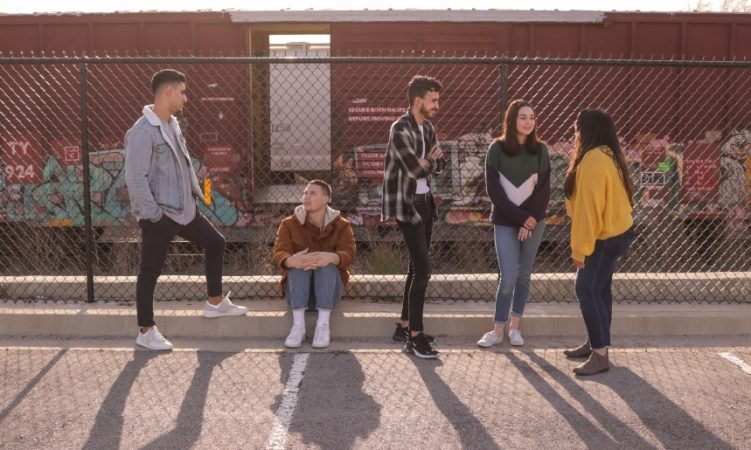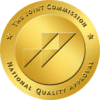Unfortunately, addiction is one of the most common diseases in the United States. Interestingly, many people are unaware that teenagers are at an exceptionally high risk of becoming addicts.
There are steps that you can take, though, if you notice this type of behavior. Let’s take a look at what to do if your child is on drugs.
What Are the Consequences of Drug Use in Adolescence?
As you might guess, some complications can arise due to drug use in children or teenagers. These often include more severe consequences than what adults would experience.
Outcomes of substance abuse:
- Failing classes or being suspended from school
- Engaging in risky or dangerous behavior
- Contracting and spreading infectious diseases
- Being involved in a motor vehicle accident
- Becoming involved in an altercation
Just to name a few.
For example, let’s assume that your child is a sophomore in high school who frequently binge-drinks alcohol on weekends. While under the influence of the substance, they will be far more likely to drive unsafely, have unprotected sex, or make other decisions that could adversely affect them in the future.
Other consequences include memory issues, damage to the neurotransmitters within the brain, and legal troubles. As you might guess, teenagers are at a particularly high risk of experiencing these issues, as drug use could interfere with their academic performance.
What Signs Should I Keep an Eye Out For?
Fortunately, it’s often relatively easy to discern whether or not your child is using drugs. Many of the symptoms are readily apparent, and you can often notice them shortly after the behavior begins.
However, some individuals are notably efficient at concealing their drug use.
Signs and symptoms of drug use in children include:
- Changes in their physical appearance (bloodshot eyes, a lack of overall grooming, or unexplained trembling)
- Unexplained bruises
- Erratic behavior
- Depression or mood swings
- Highly sensitive to cold
- Exhibit secretive behavior to conceal their drug use
- Avoid eye contact when talking to you
- Lie about where they go or plan to be
- Sneaking out at night
- Change in friends
Although this type of behavior is fairly typical of a developing teenager, it’s often a telltale sign of drug use combined with other symptoms.
Of course, the presence of drug paraphernalia is one of the most prominent ways that you can discern this behavior.
Common drug paraphernalia to look for include:
- Smoking devices (glass pipe, rolling paper, pipes in general, etc.)
- Lighters
- Syringes
- Small baggies
- Eye drops
So, keep this information in mind moving forward so that you can more effectively tell whether or not you need to confront your child about their behavior.
What Impact Could It Have on My Family?
It should come as no surprise that one of the primary effects that your child’s drug use will have on your family is emotional distress. They may exhibit a stark change in behavior or mood, making it difficult to connect with them.
They may also refuse to participate in key family moments. To elaborate, an older sibling who is frequently using drugs may miss their younger sister’s graduation. They might also neglect to help care for an elderly family member, and they may even miss a funeral due to their behavior.
Your child’s drug use may also cause a rift between you and your spouse. You may be overly concerned about their behavior, while your partner may not share the same concern.
This can easily lead to conflict that can erode a relationship.
Finally, their drug use may even cause legal issues for your entire family. It is particularly true if they supply drugs to underage children within your home or use your house as a place to sell illegal substances.
If it can be reasonably proven that you were aware of this behavior and what was taking place in your house, you could be held partially or fully liable for the consequences that occur.
To elaborate, your child may frequently have groups of friends over to take Xanax while watching TV and playing video games. If you are unsure about how to confront your child and allow this behavior to continue, you could be at fault if somebody overdoses.
How Can I Approach My Child About the Issue?
This task is much easier said than done. However, it’s not impossible to do with the right mindset. The most important thing to remember is that you should express your concern over their behavior instead of your frustration.
Start by preparing to have a conversation with your child; it is important to remember that the goal is to get through to your child. Ensure there are no distractions and that you have their sober and undivided attention.
Remaining calm and maintaining control of the situation will be the key to the success of your conversation. Remember that hurtful things may be said, and the conversation may take a turn for the worse. Be prepared to stay the course and address the underlying issues.
Convey that you would like to talk and help them through this difficult time. Let your child know how it makes you feel seeing them do drugs. It will be easiest to get information out of them if you talk slow, talk low, and ask open-ended questions.
When barriers arise, you must continue to be supportive and affirm that honesty is paramount. Remember that this is not a time for accusations and belittling your child; it should be a time for healing and support.
Knowing What to Do if Your Child Is on Drugs Can Seem Complicated
The above info, though, will help ensure that you handle the situation appropriately. Keep this guide in mind if you are wondering what to do if your child is on drugs in the future.
Want to learn more about what we have to offer? Feel free to get in touch with us today and see how we can help.









